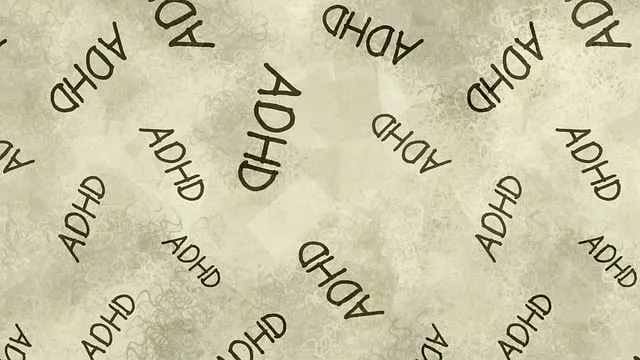Longmont Kaiser mental health programs prioritize cultural sensitivity as a cornerstone of effective treatment. By recognizing and respecting diverse cultural backgrounds, values, and healing practices, they create safe spaces for all clients. Through comprehensive training, staff develop cultural competency, avoid biases, and tailor interventions like self-esteem improvement to align with individual cultural norms. This holistic approach fosters trust, builds resilience, and significantly improves mental health outcomes for diverse communities, ensuring equitable care from Longmont Kaiser.
In an increasingly diverse society, cultural sensitivity in mental healthcare is paramount. This article explores the intricate nuances of providing culturally competent care, focusing on best practices within the context of Longmont Kaiser mental health programs. We delve into the positive impact of cultural competence on treatment outcomes and uncover challenges faced by practitioners. By examining measurement strategies, we emphasize the importance of evaluating cultural sensitivity to ensure equitable and effective mental health services for all communities.
- Understanding Cultural Sensitivity in Mental Healthcare
- The Impact of Cultural Competence on Treatment Outcomes
- Challenges and Barriers to Providing Culturally Sensitive Care
- Best Practices for Longmont Kaiser Mental Health Programs
- Measuring and Evaluating Cultural Sensitivity in Clinical Settings
Understanding Cultural Sensitivity in Mental Healthcare

Cultural sensitivity in mental healthcare is a critical aspect that ensures equitable and effective treatment for all individuals, regardless of their background. It involves recognizing and respecting the diverse values, beliefs, and practices that shape one’s relationship with mental health and well-being. At Longmont Kaiser mental health programs, this approach is integrated into every interaction to foster trust and create a safe space for clients from various cultural communities.
Understanding cultural sensitivity means going beyond general awareness. It requires mental health professionals to actively listen, educate themselves about their clients’ backgrounds, and adapt their practices accordingly. This could involve incorporating traditional healing methods, understanding the impact of intergenerational trauma, or simply showing flexibility in communication styles. By doing so, programs like Longmont Kaiser aim to build resilience, support Self-Care Routine Development for Better Mental Health, and promote Positive Thinking among their diverse clientele.
The Impact of Cultural Competence on Treatment Outcomes

In the realm of mental healthcare, cultural sensitivity and competence are paramount. The Longmont Kaiser mental health programs have recognized that understanding and respecting diverse cultural backgrounds can significantly impact treatment outcomes. When healthcare providers are trained in cultural competency, they create an environment where individuals from various ethnic, racial, or socio-cultural groups feel seen, heard, and understood. This fosters trust and open communication, essential for effective therapy. For instance, programs focusing on Self-Esteem Improvement and Social Skills Training often need to adapt their approaches based on cultural norms and values.
By prioritizing Healthcare Provider Cultural Competency Training, Longmont Kaiser ensures that its practitioners are equipped to navigate the complex tapestry of cultural differences. This training enables them to avoid presumptions and biases, offering instead tailored support that respects each client’s unique perspective. As a result, treatment plans become more effective, leading to improved mental health outcomes for all participants, regardless of their cultural background.
Challenges and Barriers to Providing Culturally Sensitive Care

Providing culturally sensitive care within mental healthcare practices presents a unique set of challenges and barriers. One significant hurdle is the potential for unconscious biases and stereotypes that can influence practitioners’ perceptions and interactions with clients from diverse cultural backgrounds. These biases may lead to misdiagnoses or inadequate treatment plans, as understanding a client’s cultural context is paramount in accurately assessing their mental health needs. For instance, symptoms of depression or anxiety can manifest differently across cultures, making it crucial for healthcare providers to be aware of these variations to offer appropriate support.
Longmont Kaiser mental health programs aim to address these challenges by promoting cultural competency among staff. This involves training professionals to recognize and appreciate the impact of cultural factors on mental well-being, including the role of community connections, family dynamics, and traditional healing practices. By fostering a more inclusive environment, these programs strive to enhance patient outcomes, facilitate better communication, and ultimately improve access to effective depression prevention, resilience-building, and confidence-boosting interventions tailored to each individual’s unique cultural needs.
Best Practices for Longmont Kaiser Mental Health Programs

Longmont Kaiser Mental Health Programs have established best practices to ensure culturally sensitive care. These include comprehensive training on compassion cultivation practices, which equip professionals with empathy and understanding for diverse cultural backgrounds. By integrating these skills into routine risk assessment for mental health professionals, practitioners can effectively navigate complex interpersonal dynamics.
The programs also emphasize crisis intervention guidance, enabling healthcare workers to respond appropriately to cultural nuances during acute situations. This holistic approach prioritizes not only the individual’s mental health but also their cultural identity, fostering an inclusive environment that respects and values diverse perspectives.
Measuring and Evaluating Cultural Sensitivity in Clinical Settings

Measuring cultural sensitivity in clinical settings is a multifaceted process that goes beyond mere awareness. At Longmont Kaiser mental health programs, this involves rigorous training and ongoing evaluation to ensure practitioners can navigate diverse patient backgrounds effectively. The Mental Wellness Podcast Series Production often emphasizes the importance of understanding cultural nuances, as anxiety relief and stress management workshops organized within these programs are tailored to resonate with various communities.
Evaluations include patient satisfaction surveys that probe the cultural competency of interactions with healthcare providers. Additionally, regular debriefing sessions facilitate open discussions about cultural challenges faced by staff, fostering an environment where learning and adaptation are continuous. These measures ensure that the Longmont Kaiser mental health programs remain sensitive to the unique needs of each patient, contributing to improved outcomes and enhanced mental wellness.
Cultural sensitivity is an indispensable aspect of effective mental healthcare, as evidenced by the success of Longmont Kaiser mental health programs. By embracing cultural competence, we significantly improve treatment outcomes and create more inclusive environments that address the unique needs of diverse patient populations. Overcoming challenges and barriers requires ongoing training, education, and evaluation, as highlighted in this article. Adopting best practices ensures that mental healthcare professionals can navigate complex cultural landscapes, ultimately fostering better relationships with patients and enhancing overall well-being within Longmont Kaiser and beyond.






